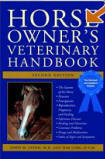|
Equine Kingdom Riding Academy
is no longer in operation. These more than 2,000 unique pages are provided for historical and educational reference. |
||
|
|
||
|
|
Demonology Study |
|
The comparing of pagan gods to demons doesn't mean that worship and belief in more than one god is the cause of Biblically interpreted demonology. Generally, the knowledge of demons living among humans is already widely known, and the connection of demons with polytheism (the belief of more than one god) has created a more extensive research of the subject. Taking a look at the Old Testament in the Bible will reveal just how unimportant and little polytheism has made an impact on the Biblical side on demonology. There is information about demons in the Old Testament found in Leviticus 16: 21 and 22, Leviticus 17:7, Isaiah 13:21 and 34:13, Deuteronomy 32:17, and Psalms 106:37. Genesis says, of Leviticus 16:21, that it is 'full of wrath with the numerous interpretations of verses.' If we accept today's popular view we will see that in demonology, superstitions and religions actually come to a consensus, or meeting point. This information from Leviticus was meant to be a representational statement that the land and those living in it were cleansed from guilt, and that their sins had been given to an evil spirit to whom they supposedly now belong, and whose home is in the deep, dark wilderness cut off from any human contact. Not many more things can be found that could create such an impression as the way that the religion of Yahweh kept the spirits at a safe distance. Leviticus 17:7 talks about partaking in the rituals of heathen worship. The two passages in Isaiah are poetical and don't really imply anything in the way of the author's own beliefs in the subject. The passage suggests that beings, both visible and invisible, supposedly live in places that are void of man, to provide the details for a vivid word picture of empty remoteness. There is no evidence that demonology has anything to do with the Fall of Man. The suggestion of one of the researchers says that the mention of current mythological creatures with animals such as jackals implies 'that demons live more or less in all the animal citizens of the ruins of isolation' is clearly a ridiculous rumor. It is almost surprising to realize that the only things that can be proved of demonology in the Old Testament is limited to a small group of scripture verses. These passages are either legal or poetical, and all of them provide examples of the restraining power that religious ideas have over the minds of the superstitious, the people that are prone to believing almost anything they are told. Even if we were to add all the rest of the passages in the Bible in which an actual existence seems to be given to the pagan gods, the demons, and interpret them in a severe sense, we still feel compelled to try to prove that the lack of evidence of demons prevents the formation of any real idea of demons indwelling this world. |




